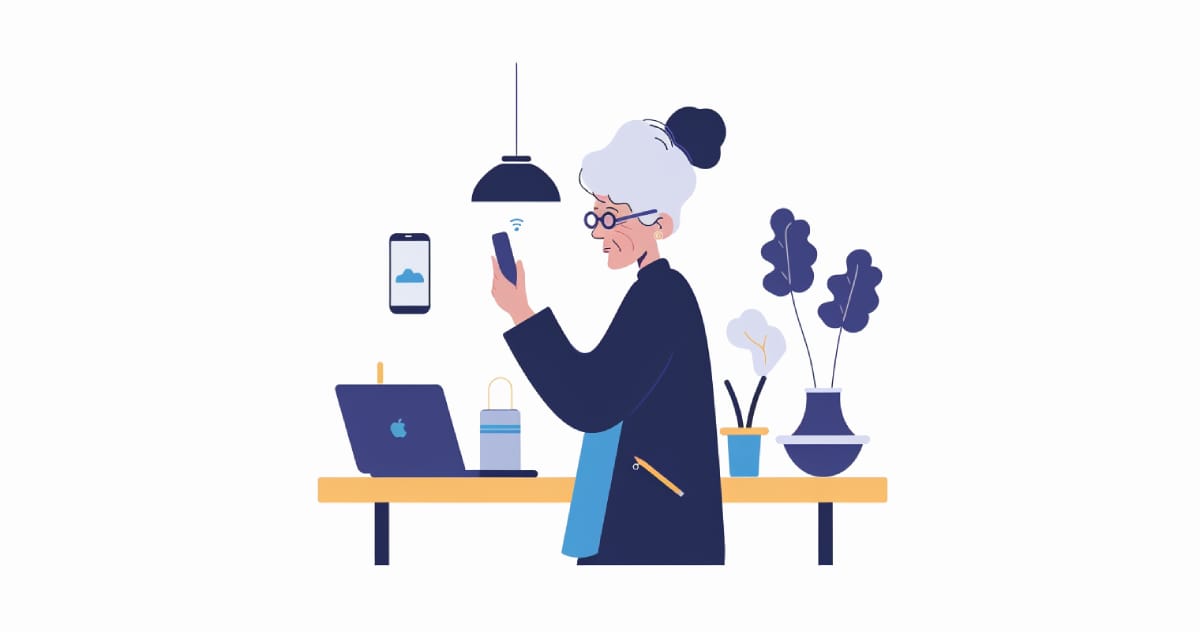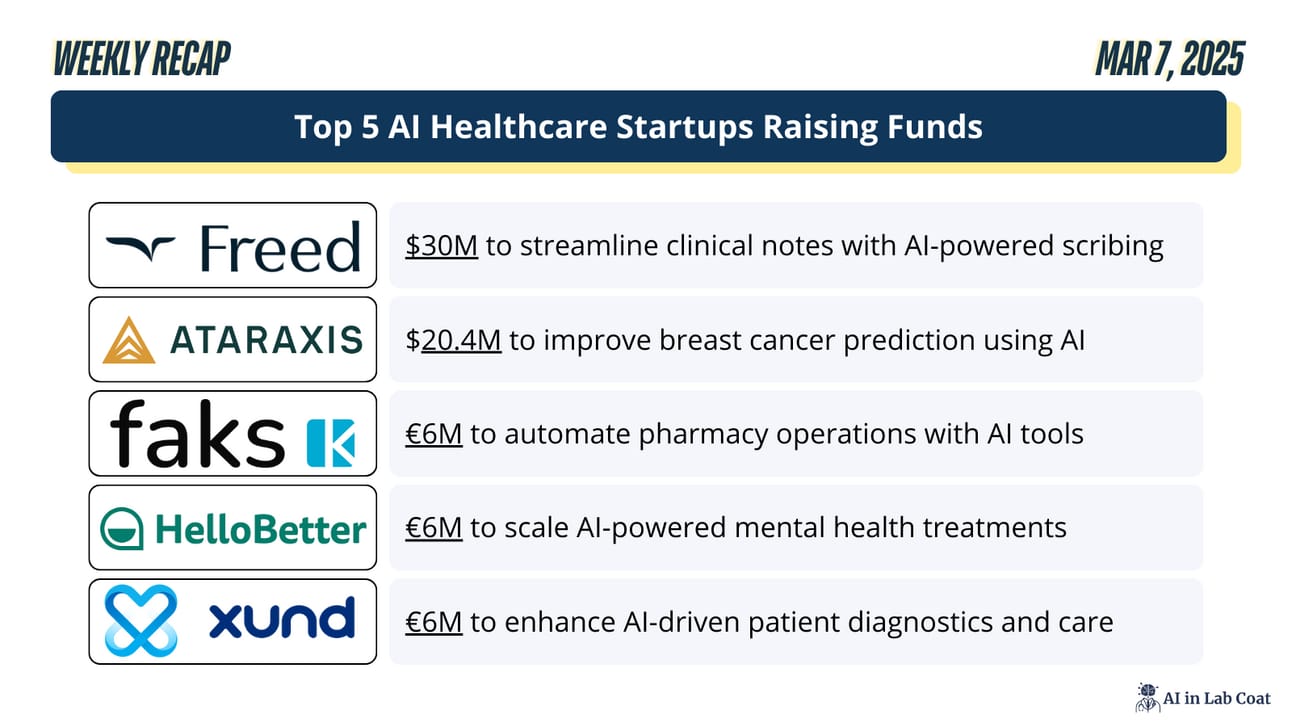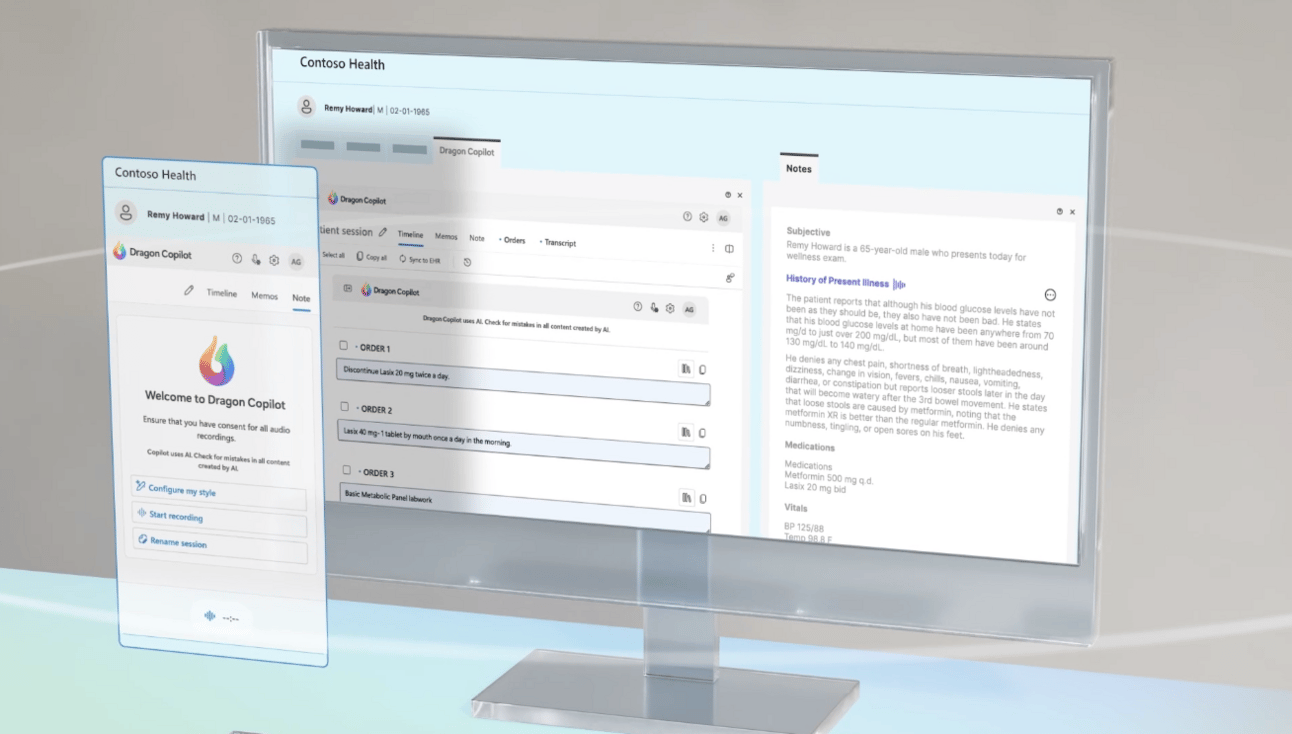- AI in Lab Coat
- Posts
- AI Spots Depression via Wi-Fi Motion Sensor
AI Spots Depression via Wi-Fi Motion Sensor
plus: Connecticut Fights AI in Health Insurance

Happy Friday! It’s March 7th.
The way AI learns today traces back to Andrew Barto and Richard Sutton. Their idea of teaching machines through rewards, just earned them the A.M. Turing Award, the highest honor in computer science. It’s the reason AI can master games, optimize trading, and so much more.
Our picks for the week:
Featured Research: AI Spots Depression via Wi-Fi Motion Sensor
Perspectives: The Next Phase of AI in Medicine
Product Pipeline: Say Goodbye to EHR Fatigue
Policy & Ethics: Connecticut Fights AI in Health Insurance
Read Time: 4.5 minutes
FEATURED RESEARCH
AI Could Soon Flag Depression Using Just Your Home Wi-Fi Motion Sensor

Mental health monitoring for older adults typically relies on clinical visits or wearable devices, both are challenging for many seniors. But researchers at McGill University are testing an AI solution called HOPE, which identifies depression using everyday Wi-Fi signals.
No wearables needed: HOPE continuously analyzes patterns in sleep and activity captured by standard home Wi-Fi motion sensor systems.
Sleep interruptions, average sleep duration, and frailty were the strongest indicators of depression, with the system correctly identifying symptoms 87% of the time.
Early signs in daily life: Depression affects up to 40% of older adults in long-term care, yet half of all cases remain undiagnosed.
HOPE offers non-intrusive, passive monitoring, ideal for people uncomfortable or unable to use traditional wearable technology.
AI you can trust: Unlike other black-box AI tools, the HOPE model uses explainable AI methods, clearly highlighting why someone might be flagged as depressed.
Factors like sleep quality and frequency of interruptions help caregivers better understand and trust the technology.
The system isn't ready for widespread use just yet! This early study included only a few participants, but larger trials are next.
It’s an interesting idea for your Wi-Fi to quietly monitor your mental health, though I wonder if this could become a gateway to monitoring other aspects of our lives, or perhaps an invasion of privacy.
For more details: Full Article
Brain Booster
Which brain region is most commonly affected in late-life depression and is associated with both mood regulation and cognitive decline? |
Select the right answer! (See explanation below)
Opinion and Perspectives
HEALTHCARE JOBS
AI Is Reshaping Healthcare Jobs, Not Replacing Them
At the HIMSS AI in Healthcare Forum, Dennis Chornenky of UC Davis Health delivered a blunt message: Healthcare leaders need to prepare now for the next wave of AI-driven automation.
The pace of change is accelerating: AI in healthcare has already reshaped workflows, reduced documentation burdens, and optimized operations.
But Chornenky warned that the next iteration, agentic AI, will go beyond content creation and start making decisions and taking actions.
This shift means automation will take over many junior-level tasks that traditionally helped professionals gain experience. PowerPoint decks, research reports, even complex workflows could soon require just a single AI prompt.
Jobs won’t disappear but they will change: Chornenky predicts that success in this AI-driven landscape will depend on managing AI, not competing with it.
Future job descriptions may emphasize overseeing AI agents rather than performing tasks manually.
Regulation is struggling to keep up: With AI advancing at an exponential rate, governance structures aren’t evolving fast enough. CIOs face growing pressure to adopt these technologies while ensuring patient safety, equity, and transparency.
The challenge is clear: Healthcare organizations must build governance frameworks for AI adoption now. Because as Chornenky put it, “AI won’t replace managers, but it will replace managers who don’t know how to use AI.”
For more details: Full Article
Top Funded Startups

For more startup funding, read our latest January Report.
Look out for our February Report next week!
Product Pipeline
VOICE ASSISTANT
Microsoft AI assistant is making documentation easier and reducing clinician burnout
Microsoft is launching Dragon Copilot, an AI-driven voice assistant that helps clinicians reduce documentation time, find critical patient information faster, and automate routine tasks.
Designed to ease administrative burdens, it enables providers to spend more time with patients and less time on the EHR.
Clinicians using Dragon Copilot have reported saving five minutes per patient encounter, with 70% experiencing reduced burnout and 93% of patients reporting a better experience.
Set to launch in the U.S. and Canada in May, followed by Europe, this AI-powered tool is built to make clinical workflows smoother, more intuitive, and less time-consuming.
For more details: Full Article
Policy and Ethics
INSURANCE CLAIMS
AI Denied Your Healthcare? Connecticut Lawmaker Wants to Stop It
A new Connecticut bill aims to prohibit health insurers from using AI to determine patient care, following concerns that automated systems are improperly denying coverage.
State Sen. Saud Anwar’s proposal, referred to the Joint Committee on Insurance and Real Estate, comes after investigations found that AI-driven systems, like those used by Cigna, denied hundreds of thousands of claims in mere seconds.
Critics argue that AI-based denials prioritize cost savings over patient well-being, while insurers claim human oversight remains in place.
With similar bills emerging nationwide, the debate over AI’s role in healthcare decision-making is intensifying.
For more details: Full Article
Byte-Sized Break
📢 Three Things AI Did This Week
A judge denied Elon Musk’s request to block OpenAI’s for-profit conversion but offered to fast-track a trial on his claims that the company violated its nonprofit mission. [Link]
The LA Times is introducing an AI-powered “bias meter” and auto-generated counterarguments on opinion articles, sparking concerns from its editorial union over AI accuracy and newsroom priorities. [Link]
Melania Trump is throwing her weight behind the bipartisan "Take It Down Act," aiming to crack down on AI-generated deepfake nudes, a growing epidemic in schools, and sending a strong message that online exploitation won’t be tolerated. [Link]
Have a Great Weekend!
 | ❤️ Help us create something you'll love—tell us what matters! 💬 We read all of your replies, comments, and questions. 👉 See you all next week! - Bauris |
Trivia Answer: A) Hippocampus
Late-life depression often involves hippocampal atrophy (shrinkage), which is bad news because this region is key for both mood regulation and memory. That’s why depression in older adults doesn’t just make them feel down, it can also look a lot like early dementia. Think of the hippocampus as a "mood and memory manager" that’s struggling to keep up with the workload!
How did we do this week? |



Reply